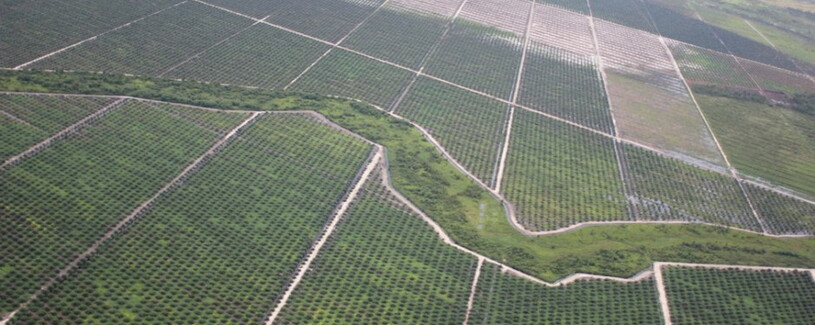Palm Oil in Indonesia: Environmental and Social Aspects

Palm oil is everywhere. Not only is it in the news, it is also an ingredient in roughly half of the products we buy. However, it is not something that consumers can easily spot or screen for. When, in June 2015, France’s Ecology minister, Segolene Royal, called on her country to stop eating Nutella to avoid palm oil, she inadvertently highlighted the hidden role it plays in the global economy. And, as fires set to clear land for palm oil plantations blazed in Indonesia throughout the fall of 2015, covering the region in haze, the ubiquitous commodity was placed under increased scrutiny. In addition to being used as a cooking oil, it is in our cookies, our shampoos, and is used as a biofuel. As a versatile plant with efficient, high yields, oil palm, and the oil derived from it has become a multibillion-dollar ($44 billion in 2013 according to Bloomberg) industry that supplies 39% of the world’s vegetable oil. This growth has occurred largely in the last 20 years (see graph below) – which has meant that as the market has grown quickly, producers have scrambled to generate supply.
Thus, even as palm oil has been heralded as a sustainable alternative to other vegetable oils, production pressures have led to undeniable environmental and social impacts on both global and local scales.
The most notable of those impacts stem from deforestation. In Indonesia and Malaysia alone (the two countries responsible for 85% of palm oil production), more than 3.7 million hectares of natural forests have been cleared in recent years to make way for plantations. This land use change plays a major role in driving global climate change, with deforestation accounting for 20% of global greenhouse gas emissions. Much of the deforestation related to palm oil has occurred with companies and individuals setting fire to the landscape. In 2015, fires raged for months in Indonesia, severely impacting Indonesian and Singaporean air quality, displacing wildlife, and leading experts to assert that Indonesia was now a bigger contributor to climate change than the U.S. Palm oil development is also happening largely in biodiversity hotspots, threatening crucial species and habitats. While the global impacts on biodiversity and climate are key to understanding palm oil, the plant's distinctly local effects are also important. Ecosystems and communities face major changes with palm oil expansion. Introducing and maintaining plantation systems has altered habitats and biodiversity, challenged contested land rights, brought new economic forces to bear, and driven new soil, air, and water pollution and health concerns, all within the context of varying degrees of government oversight and power.
Given the global and local components of the palm oil market and its impacts, it is no surprise that the future of the industry is becoming an increasingly hot topic for economists, industry, governments, and environmental and social activists. As palm oil production expands, companies, NGOs, governments, and local communities are all trying to navigate how to leverage the benefits of palm oil’s efficient yields with the consequences of its production. As with any major resource system, the picture is complex. In 2015, this is a dynamic landscape, with companies signing on to palm oil sustainability and “deforestation-free” pledges at record rates, while on-the ground progress and the substance of those pledges remains to be seen.
About this case
In the following case materials, we focus specifically on the Indonesian palm oil context due to the major role Indonesia plays in producing palm oil, the drastic expansion of the Indonesian palm oil market, and the lessons that countries experimenting with palm oil can learn from Indonesia’s attempts. The focus is on the environmental and social impacts of palm oil, with an emphasis on exploring existing environmental and social science literature. We highlight areas of scientific certainty, as well as contention, and include questions regarding how groups are attempting to develop sustainable alternatives. Links are provided throughout to useful videos, audio, images, primary literature, news articles, and reports, and to particularly relevant sections of the Yale School of Management’s (SOM) palm oil case. These materials can be read on their own, in sections, or in tandem with the SOM palm oil case, which focuses more on the stakeholder dilemmas presented by palm oil production.